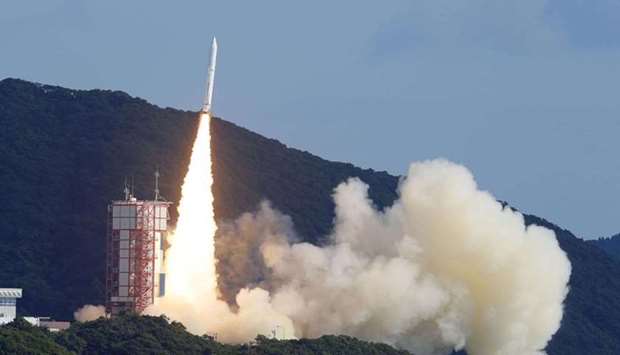Japan announced on Tuesday that it has successfully launched a rocket carrying nine small satellites, all put into orbit, on a mission to test a variety of spaceflight technologies.
The Epsilon-5 rocket lifted off from Uchinoura Space Center in the southwestern prefecture of Kagoshima at around, the Japan Aerospace Exploration Agency (JAXA) said.
The rocket, which measures 2.6 meters in diameter and 26 meters in length and weighs 96 tons, carried nine satellites, and the size of the rocket is half the size of the rockets that Japan has been launching, and it uses artificial intelligence to ensure its safety.
JAXA stated that one of the satellites on board the rocket, developed by Kawasaki Heavy Industries, is an experimental vehicle designed to collect space debris.
JAXA launched an Epsilon in January 2019, sending seven satellites into space.
The Epsilon series uses solid fuel, which takes less time to load on rockets than liquid propellant.

